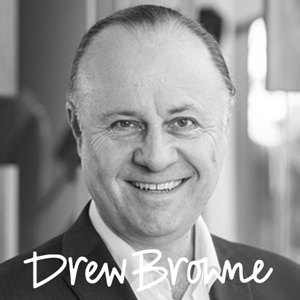It's enough to make you want to wash your mind out
What a mess.
Well the Banking Royal Commission (aka Royal Commission into Misconduct in the Banking, Superannuation and Financial Services Industry) closed in early 2019 and 76 recommendations were made spanning the Banking, Superannuation and Insurance industry and the government’s regulators a plenty.
So what is the final outcome of the Banking Royal Commission?
We’ve tried to distill the main themes down to 4 simple points below.
All the depressing and reprehensible details you can read yourself, here .
Read in this article
- So now what?
- So where to now?
- Why did big banks get involved in financial advice in the first place?
- The Curse of the One-Stop-Bank-Shop
- The Banking Royal Commission's findings in 4 steps
- Were the Big Banks fined?
- What happens now?
- What's the outcome for the average Australian?
- What do the supply and demand numbers suggest about the future of advice?
- Who will need to pay the increased cost of Financial Advice in Australia?
- What’s the human outcome?
- More Regulation hastily wrapped in more red tape
- Seeing the elephant in the room - the future for low income value clients
- Is this a conclusion?
But be warned, even an initial reading of High Court justice and royal commissioner Kenneth Hayne's 76 recommendations may leave you feeling like ‘the big banks were allowed to vandalise the financial advice world and when exposed, have now taken their bat and ball and left the industry’.
So now what?
The Australian Consumer is left to foot the real bill and the honest financial advisers the rest of the mess; that is the world of Australian Financial Advice.
- Clearly the trust gap between consumer and the advice industry has widened, and the trust gap between the regulators and the advisers too; and with many good reasons.
So where to now?
How do you separate ‘the vandals’ from the people ‘who genuinely care about the financial future of Australians?’
If you’re of the regulators persuasion, that there are no honest advisers left who care for their clients, you might find your post-apocalyptic dystopian quantum of solace here.
For those of us who are still left standing, let's look at that question together.
- Imagine the mess of having such a terrible experience with a Doctor that you vowed never to see another Doctor again?
- This is ultimately the residue of the economic and relational vandalism that big banking has brought to the table.
While acknowledging the damage wrought, all Australian consumers of financial advice will have to learn (and continually re-learn) new ways to find the right financial adviser for them, to understand their specialist and their philosophy.
- Consumers will need a better reason other than, 'I found them through a post code search on Google Maps' or 'the bank manager referred me to them,' for choosing to work with a financial adviser.
If we’re all going to be able to find a way through to a brighter future with our individual financial lives intact - and still afford to be able to help our families and friends all get on with life - we’ll all need to be more;
- informed about what causes conflicts of interest,
- understand more about what drives our own behaviours,
- assume more responsibility for our own financial and investment outcomes, and
- begin to increase greater financial literacy into our personal skills and those of our children
This is how we’ll find our way through the ongoing mess that is Australian Financial Services.
Why did big banks get involved in financial advice in the first place?
Well the simple answer is money. The more involved answer involves a term called vertical integration.
Vertical integration could be said to exist where for example;
- the bank who recommends the home loan,
- then recommends the Life Insurance and
- then the Superannuation, and
- then the Investments for the children's education etc.,
all the while when they actually own the life Insurance company, the Superfund and the Investment company that they recommended.
The Curse of the One-Stop-Bank-Shop
The big banks hoped the convenience offered would help the captive customer overlook the additional costs (and power imbalance) and perhaps give the now vulnerable customer something to consider; while they’re waiting for the big bank to decide whether to approve their new mortgage application or not.
The Banking Royal Commission's findings in 4 steps
While there are as many people who will seek to argue the details of the Commissioner's findings, as there are paid political lobbyists pushing the interests of their own masters ahead of those interests of the consumer, the Commission's outcome and its 76+ recommendations could be explained in 4 main broad themes.
- Bad conduct by Banks, Superannuation Funds and Insurance companies was driven by profit and personal gain and not the best interest of the customer.
- The businesses that engaged in reprehensible behaviour were able to do so due to the power imbalance and information imbalance occurring in their favour and to the detriment of the consumer.
- While many consumers believed they were dealing with independent financial advisers, they were actually dealing with employees of the major institutions, meaning there was a clear and major conflict of interest at work.
- The government's Regulators continued to fail in their duty to protect the Australian consumer.
Were the Big Banks fined?
While the resulting class actions will no doubt continue for years to come, Australia's big four banks are facing an additional $2.4 billion in regulatory costs to try and tidy up the mess left behind from years of their misconduct.
What happens now?
The major banks, as they attempt to untangle themselves from the post-Hayne train wreck, have left the financial advice industry in a mess; similar to the way vandals transform clean public property then flee into the night to avoid responsibility - ‘leaving the rest of us to endure their artwork’.
What's the outcome for the average Australian?
More Legislation, More Red Tape, More Professional Organisations, more fees for everyone and more special taxes (that are called fees).
What do the supply and demand numbers suggest about the future of advice?
It’s estimated over 6000 practicing financial advisers have since left the industry in the past 18 months from an initial total of just over 25,000 advisers. Estimates show within two years there may only be 10,000 active financial advisers left to service a population of 25 million people.
Who will need to pay the increased cost of Financial Advice in Australia?
Increasing costs in time and money (and ever increasing compliance costs), will ultimately be borne by the customer.
What’s the human outcome?
As the new legislation continues to be tinkered with so in the strike of a pen, the lives of many employed advisers and self-employed financial advisers, has been decimated.
Part time advisers are leaving the industry
Many females, part-timers, single parents, people in their 50s and 60s with years of experience are leaving the advice industry because the ever increasing cost of licensing and meeting the new requirements is so high; they cannot afford to remain in the industry.
Full time advisers have been told they need still more education
To remain in the industry, financial advisers will now need to meet additional educational requirements, adding approximately $15,000 to the business expenses for a typical adviser - not to mention the additional time and impact it will have upon their running an advice business.
Adviser income levels dropping
Income levels for Risk Insurance advisers dropped 40% due to new mandated reduced limits on their commission based income. In addition, increases in clawback mandates mean up to 60% of any income received is at risk of being clawed-back upon the cancellation of an insurance policy in the first 24 months.
- This translates to advisers having to become even more selective about the type of client they risk bringing into their business.
And the human cost?
The average suicide rate in Australia is 13 per 100,000 (ABS, 2017) and sadly over last 12 months 16 Financial Advisers have committed suicide which is about 3.25 times the national average.
Insiders will tell you the honest number is more towards 30+ adviser suicides.
More Regulation hastily wrapped in more red tape
- In April 2017 a new Financial Adviser Standards and Ethics Authority (FASEA) was established who then set National Financial Advisers Standards.
- [Ed: Article update October 2020] Arguably a law unto only themselves, this same body was then flagged to be dismantled and closed in only four years in 2021.
Seeing the elephant in the room - the future for low income value clients
For many years self-employed financial advisers were able to continue to provide services to those Australians who needed advice the most but who were unable to afford the full cost. These low income clients were effectively subsidised by higher paying clients and the practice continued respectfully for years in the offices of many advisers connected to their communities.
- Now, due to spiralling costs and increasing in compliance these, ‘lower income value clients’ are now left without access to even the simplest of advice and guidance.
- Many financial advisers have begun the process to jettison some of the very people they have long fought to help and protect as they face the further commercialisation of advice.
“It breaks your heart to now have to say, "go away" because you can't afford them.
The pressure that Financial Advisers are under is real and the consequences can be devastating.
“While the financial services industry is in political, regulatory and procedural turmoil, with loss of incomes, businesses and lives to adviser suicide - does this persistent cloud of uncertainty and depression threaten to choke what is left of the hope for a better future?”
Is this a conclusion?
The future of financial advice is unusually unstable; with legal requirements increasing and remuneration decreasing and honesty about the realities of this confluence, quickly depleting.
- So you'd probably want to make sure you have a solid relationship with your financial advisor today.
- And if you don't yet have one, you'd be well served trying to find one now and getting some basic work underway, establish a relationship that works for you both; as finding one in the future may be considerably more difficult and expensive.
Sapience Financial has been on record for many years commentating about the fractured world that is Australian Financial Advice.
We have modern business systems, different business attitudes and processes and proud strong relationships with our growing list of clients, friends and supporters so we’re committed to being here for the next 25 years - whatever that future looks like, and we’re in it with you, together.

Drew Browne
Founder & Senior Advisor
Sapience Financial
Call us today on 1300 137 403 or email us here for a no-obligation private chat about your situation.
 Drew Browne is a specialty Financial Risk Advisor working with Small Business Owners & their Families, Dual Income Professional Couples, and diverse families. He's an award-winning writer, speaker, financial adviser and business strategy mentor. His business Sapience Financial Group is committed to using business solutions for good in the community. In 2015 he was certified as a B Corp., and in 2017 was recognised in the inaugural Australian National Businesses of Tomorrow Awards. Today he advises Small Business Owners and their families, on how to protect themselves, from their businesses. He writes for successful Small Business Owners and Industry publications. You can read his Modern Small Business Leadership Blog here. You can connect with him on LinkedIn. Any information provided is general advice only and we have not considered your personal circumstances. Before making any decision on the basis of this advice you should consider if the advice is appropriate for you based on your particular circumstance.
Drew Browne is a specialty Financial Risk Advisor working with Small Business Owners & their Families, Dual Income Professional Couples, and diverse families. He's an award-winning writer, speaker, financial adviser and business strategy mentor. His business Sapience Financial Group is committed to using business solutions for good in the community. In 2015 he was certified as a B Corp., and in 2017 was recognised in the inaugural Australian National Businesses of Tomorrow Awards. Today he advises Small Business Owners and their families, on how to protect themselves, from their businesses. He writes for successful Small Business Owners and Industry publications. You can read his Modern Small Business Leadership Blog here. You can connect with him on LinkedIn. Any information provided is general advice only and we have not considered your personal circumstances. Before making any decision on the basis of this advice you should consider if the advice is appropriate for you based on your particular circumstance.








